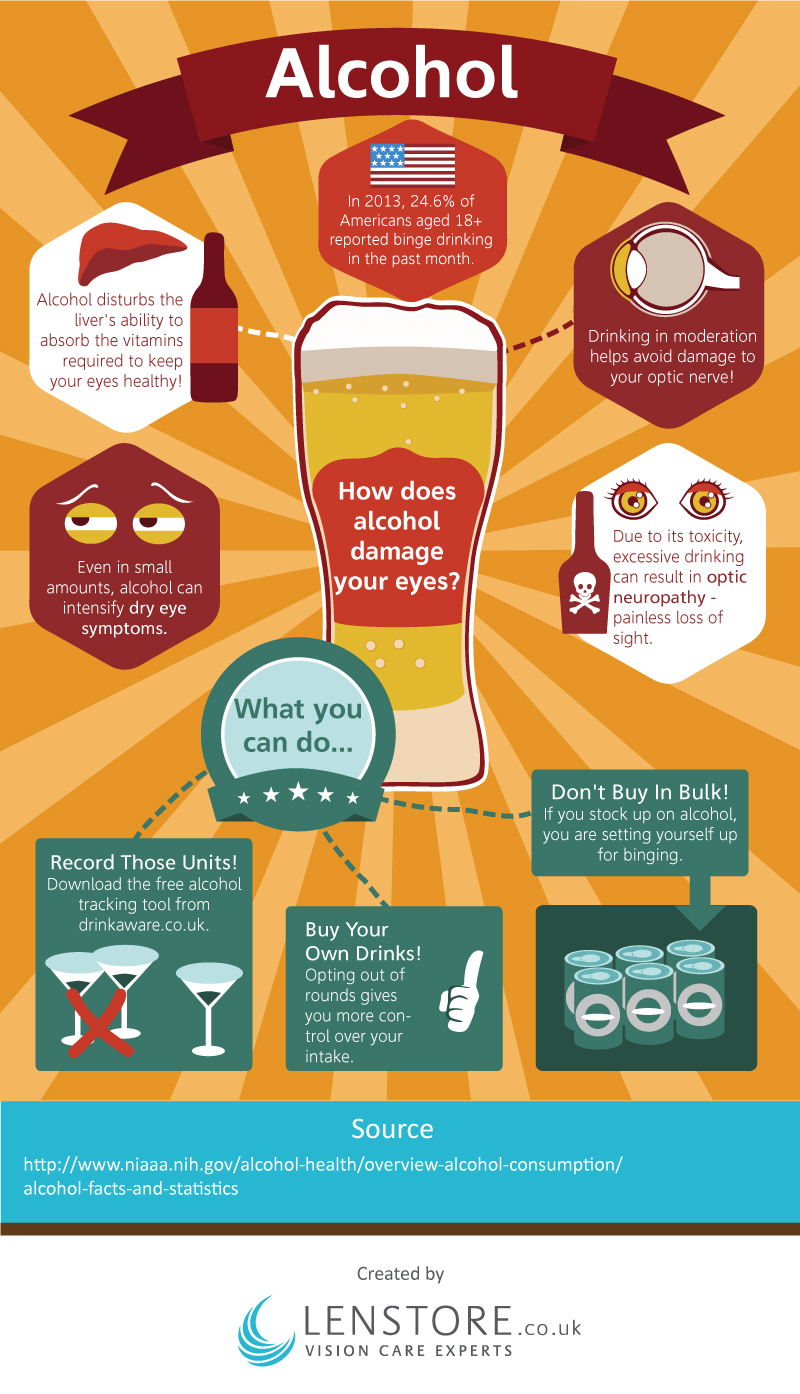The effects of alcohol on your vision
If you've ever had too much to drink, you'll know that alcohol can cause blurry vision and make you feel dizzy. What you may not know, however, is that temporary distorted vision is not the only side effect of alcohol consumption, particularly if you drink a lot. It can, in fact, impair your eyesight in more severe ways.
Drinking in moderation will not have any long-lasting detrimental impact on your eyes and any symptoms you do experience will likely stop soon after your drinking session is over. On the other hand, if you drink large amounts of alcohol on a regular basis, you put yourself at risk of more serious and even life-changing eye conditions.

How does alcohol affect our vision?
- Intensified dry eye syndrome: Studies show that the consumption of alcohol - even if it is limited - can aggravate and intensify symptoms of dry eye. These symptoms may include stinging or burning sensations in your eyes, sensitivity to light, redness, discomfort when wearing contact lenses and eye fatigue. To help combat the effects of dry eye syndrome, see our tips here.
- Increased strain on the liver: Eating a diet full of nutritional value helps protect your eyes and prevent more severe conditions. However, alcohol disturbs the liver's ability to absorb the vitamins required to keep your eyes healthy.
- Weakening eye muscles: Excessive drinking over a long period of time causes damage to brain cells and decreases the speed of communication between neurotransmitters, which send signals around your body. This delayed interaction between your brain and your eyes means that they are not able to function to their full potential, and your eye muscle coordination can be weakened. As a result, your vision may be permanently distorted, which can also decrease your reaction time.
- Optic neuropathy: Due to its high toxicity, excessive alcohol consumption can result in optic neuropathy. This is when your vision painlessly deteriorates and you struggle to distinguish colours. This is a more severe effect of drinking and is an ongoing condition that becomes progressively worse as time goes by.

What can you do?
- Track your units: How our bodies react to alcohol consumption varies from person to person, but it is a good idea to consider your recommended units of alcohol. There are several free apps available to download that can help you track this. Buying your own drinks and opting out of rounds gives you the control you need to monitor your alcohol intake on a night out.
- Pace yourself: To prevent intoxication, you should drink slowly (e.g. one alcoholic beverage each hour accompanied by a glass of water) and make sure you have eaten well beforehand. Never buy in bulk because if you stock up on alcohol… you are setting yourself up for binge drinking.



